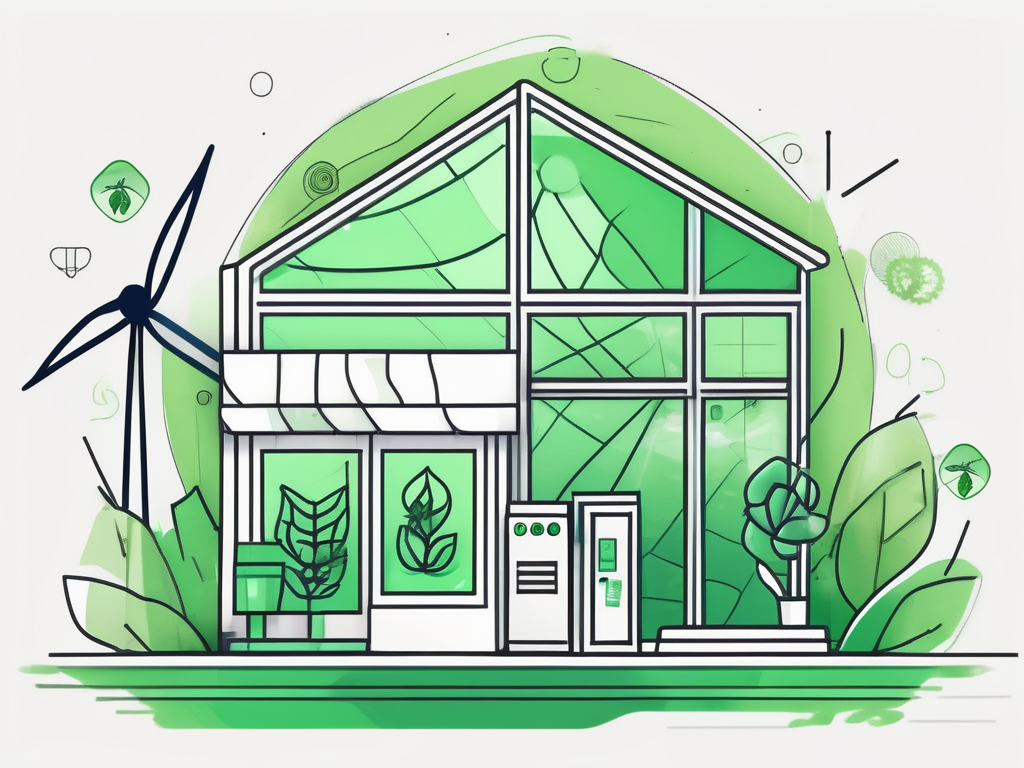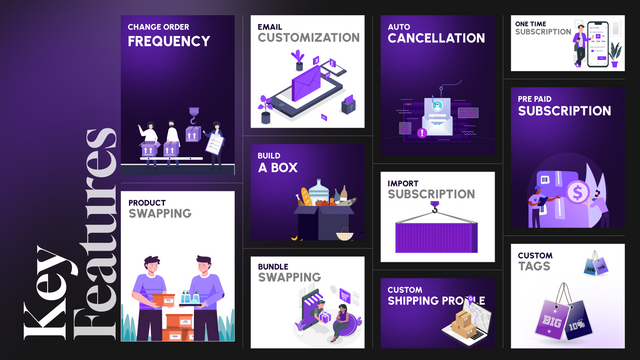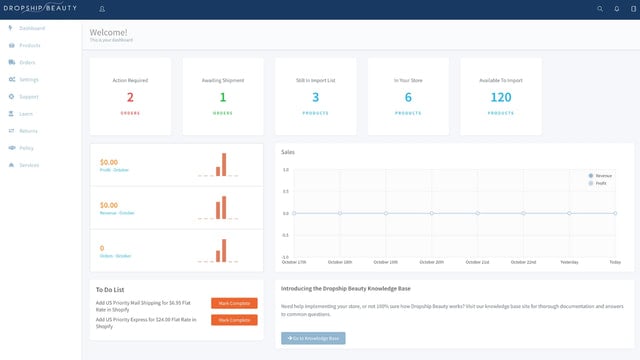In today's digital age, online stores have become an integral part of our lives. With the convenience of shopping from the comfort of our homes, it's no wonder that e-commerce has experienced exponential growth. However, this surge in online retail has also raised concerns about its environmental impact. It's essential for online stores to adopt sustainable practices that minimize their carbon footprint and promote responsible business operations.
Understanding Sustainability in E-commerce
Sustainability is not just a buzzword. It is a mindset that prioritizes actions and strategies that reduce negative environmental impacts and promote social responsibility. In the context of e-commerce, sustainability refers to the efforts made by online stores to minimize waste, conserve energy, and ensure ethical sourcing throughout their operations.
When it comes to sustainability in e-commerce, it's essential to consider the entire lifecycle of a product - from sourcing raw materials to manufacturing, packaging, transportation, and finally, disposal. Each stage presents opportunities for online retailers to make environmentally conscious decisions that can have a positive impact on the planet.
The Importance of Sustainability in Online Retail
Online retail has the potential to make a significant environmental impact due to its reliance on transportation, packaging materials, and energy consumption. By embracing sustainable practices, online stores can contribute to the global effort to combat climate change, reduce resource depletion, and promote a greener future.
Furthermore, sustainability in e-commerce is not just about reducing environmental harm. It also encompasses social responsibility, including fair labor practices, supporting local communities, and ensuring the well-being of workers throughout the supply chain. By prioritizing sustainability, online retailers can build trust with consumers who are increasingly conscious of the ethical implications of their purchasing decisions.
Key Elements of a Sustainable Online Store
A sustainable online store encompasses various practices that address different aspects of sustainability. These include:
- Energy-efficient website infrastructure
- Eco-friendly packaging solutions
- Sustainable supply chain management
- Promotion of responsible consumer behavior
Each of these elements plays a vital role in minimizing the environmental impact of online stores.
Moreover, sustainable online stores often engage in initiatives such as carbon offset programs, waste reduction efforts, and partnerships with eco-conscious organizations to further enhance their commitment to sustainability. By continuously evaluating and improving their practices, e-commerce businesses can lead the way in creating a more environmentally friendly and socially responsible industry.
Implementing Green Packaging Solutions
Packaging is a significant contributor to waste in the e-commerce industry. To address this issue, online stores need to prioritize eco-friendly packaging solutions.
In recent years, the push for sustainable practices has led to innovative solutions in the packaging industry. From mushroom-based packaging materials to seaweed-derived alternatives, there are now a plethora of eco-friendly options available for businesses to choose from. These materials not only help reduce waste but also showcase a commitment to environmental stewardship.
Choosing Eco-Friendly Packaging Materials
When selecting packaging materials, online stores should opt for reusable, recyclable, or biodegradable options. Materials such as recycled cardboard, plant-based plastics, and compostable packaging can help reduce the environmental impact associated with packaging waste.
Furthermore, advancements in technology have paved the way for the development of innovative packaging solutions. For instance, some companies are exploring the use of mycelium, the root structure of fungi, to create biodegradable packaging that is not only sustainable but also cost-effective. By embracing these cutting-edge materials, online stores can stay ahead of the curve in green packaging practices.
Reducing Packaging Waste in Deliveries
Efficient packaging design and right-sizing packaging are essential strategies to minimize waste. By reducing the amount of excess space in packages, online stores can optimize shipping efficiency and decrease the overall volume of packaging materials used.
In addition to material choices, the logistics of packaging play a crucial role in waste reduction. Implementing smart packaging algorithms and automation systems can help streamline the packing process, ensuring that each item is shipped in the most space-efficient manner possible. This attention to detail not only reduces environmental impact but also enhances the overall customer experience by minimizing package size and material usage.
Energy Efficiency in Online Operations
Energy consumption is a significant concern for online stores, as the servers and computing infrastructure required for website operations can consume vast amounts of electricity. Implementing energy-efficient practices can make a significant difference in reducing the carbon footprint of online operations.
One key aspect of energy efficiency in online operations is the utilization of server virtualization. By consolidating multiple virtual servers onto a single physical server, online stores can optimize resource usage and reduce overall energy consumption. This approach not only decreases the number of physical servers required but also improves the efficiency of server utilization, leading to energy savings.
Optimizing Website Energy Consumption
Online stores can reduce their website's energy consumption by optimizing code and using efficient server configurations. This includes minimizing unnecessary scripts and optimizing image sizes to reduce page loading times and decrease server workload.
Another effective strategy for enhancing energy efficiency in online operations is the implementation of Content Delivery Networks (CDNs). CDNs help distribute website content across multiple servers located in different geographic regions, reducing the distance data needs to travel and improving loading speeds. This not only enhances user experience but also reduces the energy consumption associated with delivering content to end-users.
Sustainable Web Hosting Options
Choosing a web hosting provider that prioritizes renewable energy sources can significantly reduce the environmental impact of online operations. By selecting a green web hosting service, online stores can ensure that their website's infrastructure is powered by clean and sustainable energy.
Additionally, implementing server-side caching mechanisms can contribute to energy efficiency by reducing the need for frequent data processing and retrieval. By storing frequently accessed data in cache memory, servers can respond to user requests more quickly, thereby decreasing energy consumption and improving overall performance.
Sustainable Supply Chain Management
The supply chain plays a crucial role in the overall sustainability of online stores. By selecting sustainable suppliers and streamlining logistics, online stores can reduce their carbon footprint and promote ethical practices throughout the supply chain.
Ensuring sustainability in the supply chain involves a comprehensive approach that goes beyond just selecting suppliers. Online stores can also focus on improving packaging practices to minimize waste and utilize eco-friendly materials. By opting for recyclable or biodegradable packaging, businesses can further enhance their commitment to environmental stewardship.
Selecting Sustainable Suppliers
Online stores should prioritize partnering with suppliers that adhere to sustainable practices. This includes sourcing products from manufacturers that prioritize renewable resources, minimize waste generation, and operate under fair labor practices.
Furthermore, establishing long-term relationships with suppliers allows for better transparency and collaboration in implementing sustainable initiatives. Regular communication and joint goal-setting can lead to continuous improvements in environmental and social responsibility across the supply chain.
Streamlining Logistics for Lower Carbon Footprint
An efficient logistics strategy is essential for minimizing the environmental impact of online retail. By optimizing shipping routes, using low-emission vehicles, and consolidating shipments, online stores can significantly reduce their carbon emissions and contribute to a greener supply chain.
Implementing technology solutions such as route optimization software and real-time tracking systems can further enhance the efficiency of logistics operations. These tools not only help in reducing fuel consumption and greenhouse gas emissions but also improve delivery accuracy and customer satisfaction.
Promoting Responsible Consumer Behavior
While online stores have a role to play in promoting sustainability, consumers also have a crucial part to play. By encouraging responsible shopping habits and offering carbon offset options at checkout, online stores can empower consumers to make sustainable choices.
It is important for consumers to be aware of the impact their purchasing decisions have on the environment. Online stores can play a significant role in educating their customers about sustainable practices and the benefits of choosing eco-friendly products. By providing detailed information about the environmental footprint of different products, stores can empower consumers to make informed decisions that align with their values.
Encouraging Green Shopping Habits
Online stores can educate their customers about the environmental impact of their purchasing decisions. By highlighting eco-friendly products, offering sustainable alternatives, and providing information about the sustainability practices of different brands, stores can inspire consumers to make more conscious choices.
Moreover, online stores can collaborate with environmental organizations and experts to create educational content that raises awareness about the importance of sustainable consumption. By sharing tips and resources on how consumers can reduce their carbon footprint through their shopping habits, stores can foster a community of environmentally conscious shoppers committed to making a positive impact.
Offering Carbon Offset Options at Checkout
Online stores can give customers the opportunity to offset the carbon emissions associated with their purchases. By partnering with carbon offset programs, stores can provide a simple and effective way for consumers to contribute to environmental initiatives and offset the environmental impact of their deliveries.
Additionally, online stores can implement transparency measures that allow customers to track the environmental impact of their orders, including carbon emissions, water usage, and waste generation. By providing this information, stores can promote accountability and encourage consumers to make more sustainable choices in their shopping behavior.
In conclusion, sustainable practices are crucial for online stores to minimize their environmental impact and contribute to a greener future. By implementing eco-friendly packaging solutions, focusing on energy efficiency, prioritizing sustainable supply chain management, and promoting responsible consumer behavior, online stores can become champions of sustainability in the e-commerce industry.
As you strive to make your online store a beacon of sustainability, remember that the right Shopify apps can be powerful allies in your journey. OwlMix is here to help you find innovative solutions that align with your eco-friendly mission. With a curated selection of apps focused on energy efficiency, waste reduction, and sustainable supply chain management, you're just a click away from enhancing your store's green practices. Let Owlfred, our wise mascot, guide you to "find your next Shopify app" and take a significant step towards a more sustainable e-commerce business. Discover apps that can help you promote responsible consumer behavior, optimize your operations, and contribute to a healthier planet.

















